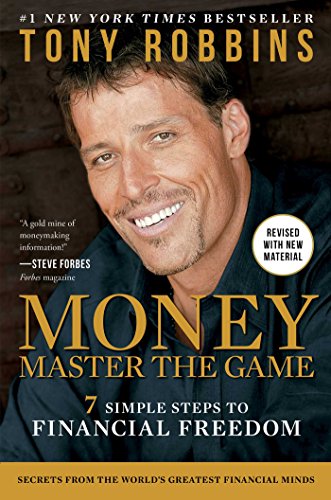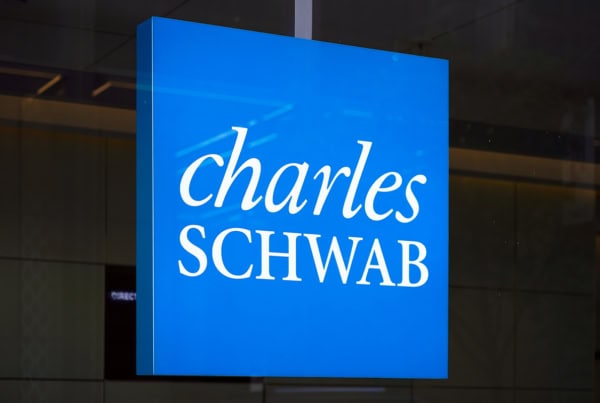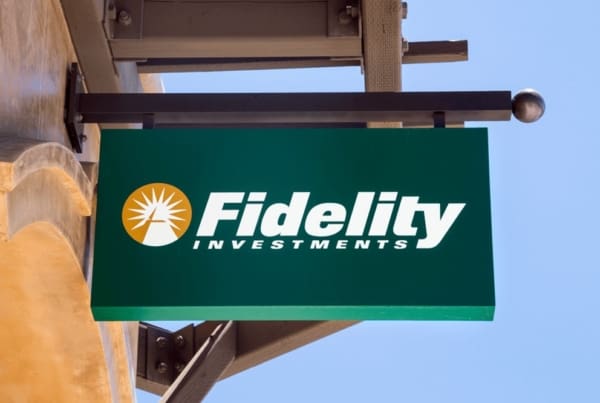As the world around us continues to deepen in complexity, to keep abreast of the latest changes affecting our lives, we need to take a proactive approach in learning new skills, educating ourselves, and gaining exposure to new ideas. Doing so will reward us in innumerable ways.
One important area for young adults to focus is learning financial literacy, or absorbing financial knowledge and skills to improve our personal lives through our everyday actions.
Formally, financial literacy is the ability to understand issues related to money and how it’s used, especially when it comes to managing your personal finances.
Financial literacy, unfortunately, isn’t an innate skill and is something which requires effort to build.
The TIAA Institute found in a 2018 survey that most Americans don’t have “the knowledge necessary to make routine financial decisions.” On a test with basic financial topics, the average adult could not answer half of the questions correctly.
Further, a Bank of America survey discovered less than one out of three respondents between the ages of 18 and 26 considered their high school education to have satisfactorily taught them useful financial habits.
For most people, if you want to learn how to improve your financial literacy, you need to seek out opportunities to do so.
What follows are several useful financial literacy resources you should consider for improving your money knowledge and skills. Begin first by understanding finance jargon and then proceed to learning more about financial literacy topics through books, courses, podcasts, apps, and other resources. Afterward, we walk through the benefits of financial literacy and learning it at an early age.
Where to Learn Basic Finance Jargon
Before you’ll be able to understand more complex financial literacy topics, there are some basic financial terms you’ll need to learn. One resource that takes seemingly complex financial terms and makes them easy to understand is learn.robinhood.com.
The Robinhood investing app has done a lot to benefit retail investors. Of note, Robinhood has slashed trading commissions to $0, meaning you pay nothing to trade stocks, bonds, or index funds on Robinhood.
Many see it as one of the best stock trading apps, or at least the cause of many to slash commissions to nothing. Certainly people see this as one of the best stock trading apps for beginners due to its simplicity, fractional share capability and free cost.
This free trading extends to more exotic (and complicated) areas like options trading and cryptocurrencies, though these remain items subject for more sophisticated investors.
Additionally, the service offers a Cash Management feature, which acts similar to a high-yield savings account. Robinhood offers numerous products and services to its customers at low cost or free, making one wonder how does Robinhood even make money?
Well, many Robinhood alternatives have taken note and attempted to replicate its business model. One thing for sure with these numerous online discount brokers competing on price is that retail investors have come out as the winners.
After decades of costly investing, firms like Webull, Acorns, and M1 Finance have managed to slash commissions to $0 and provide their cost-effective services to Millennials who often have small amounts of money to invest at any one time.
For those interested in learning more about many financial literacy topics, consider visiting the learn.robinhood site to see how their explanations can make complex finance topics simple.
From there, you may want to sign up for the Robinhood app to learn how to start investing money. Signing up even comes with a free stock to get started.
- Robinhood is a pioneer in the investing app world, offering commission-free trades on stocks, ETFs, options, and cryptocurrency, as well as one of the deepest libraries of investing educational content.
- Investing for retirement? Robinhood will match 1% of any IRA transfers or 401(k) rollovers, as well as any annual contributions*, made to your Robinhood Retirement account—and you can get a 3% match on any new contributions if you subscribe to Robinhood Gold.
- Want more advanced trading tools? Download Robinhoold Legend—a desktop trading platform with real-time data, customizable layouts, deeper asset analysis, and more—for free.
- Robinhood's robo-advisory service, Robinhood Strategies, will build you a custom portfolio of stock and bond ETFs (and individual stocks for accounts with at least $500), for a low 0.25% in AUM, which is capped at $250 annually for Robinhood Gold members.
- Robinhood Gold also includes Level II market data provided by Nasdaq, higher interest rates on uninvested brokerage cash, lower margin trading rates, bigger Instant Deposits, and access to the Robinhood Gold Card (a 3% cash-back Visa credit card).
- Special offer: Sign up for Robinhood, link a bank account, and fund your account with at least $10, and receive a randomly selected cash amount between $5 and $200 to put toward certain fractional shares.
- Very good selection of available investments in brokerage accounts
- 1% match on rollovers, IRA transfers, and new contributions to IRAs and Roth IRAs (3% new-contribution match with Robinhood Gold)
- Automated recommended portfolios
- Intuitive interface
- Robo-advisory service (Robinhood Strategies)
- Extensive educational library
- No mutual funds in brokerage or IRAs
- Match doesn't apply to Robinhood Strategies accounts
Popular Financial Literacy Books
Books, whether you read a physical copy, an ebook version, or listen to them as audiobooks, are still one of the most effective ways to broaden your financial literacy. There are seemingly endless books fighting to give you financial advice, but the quality is not all equal.
These are some of the top finance and investing books people find help them improve their financial literacy.
→ Money Master The Game: 7 Simple Steps to Financial Freedom by Tony Robbins
Robbins’ book states, “Information without execution is poverty. Remember: we’re drowning in information, but we’re starving for wisdom.” If this line resonates with you and you feel overwhelmed with financial research, Money Master would be a good read for you.
Tony Robbins conducted extensive research as well as interviewed prominent investors, such as Warren Buffett, John Bogle, Paul Tudor Jones, and more. He created a 7-step blueprint for how you can secure financial freedom.
Robbins gives readers actionable finance advice, such as how to formulate a savings and investing plan, and busts common finance myths.
→ Total Money Makeover by Dave Ramsey
Millionaire Dave Ramsey is no stranger to writing and teaching about finance. Total Money Makeover is his most notable book and provides seven “baby steps” to help you get out of debt, save money, invest, and more.
This isn’t a book on finance theory, but is instead clear and actionable. You’ll learn the top most dangerous money myths. The book also comes with 50 success stories of people who followed Ramsey’s principles.
→ The Millionaire Next Door by Thomas J. Stanley and William D. Danko
For this book, Stanley and Danko analyzed the habits and behavior of millionaires to see how they spend money, save it and invest it. From this, they found seven basic rules everyone should follow if they want to accumulate wealth.
Hint: wealth doesn’t necessarily require a high-profile job. Many millionaires didn’t just inherit money, but worked hard and saved most of their earnings. Learn their frugal habits and how wealthy doesn’t always mean flashy.
You can even work a second job like me as a freelance finance writer.
Top LinkedIn Learning Courses for Financial Literacy
You don’t only have to improve your financial literacy through reading. You can learn through online finance classes as well. LinkedIn Learning has a variety of finance and financial literacy courses geared at teaching you the basics of different finance topics.
A handful of examples include:
- Financial Basics Everyone Should Know. This course teaches how to use certificates of deposits, leverage brokerage accounts, use Roth Individual Retirement Accounts (IRAs) and SEP accounts, and more.
- Personal Finance Tips & Tricks. This class discusses financial situations when considering going back to school, paying off student loans, how to ensure you and your partner are financially compatible, and more.
- Managing Your Personal Finances. Here you can learn how to change your attitude about money, maximize your earning potential, understand your credit score, and more.
- Finance Foundations. After this course, you’ll be able to describe the operating cycle, name the benefits of keeping fixed costs low, compare stock index funds to corporate bonds, understand income assets, why you need to invest in passive income ideas and more.
- Understanding Capital Markets. This course teaches what call and put options are, the process of stock valuation, the difference between shorting stocks and going long, and more.
Once you’ve taken some beginner courses, you can continue with intermediate and advanced classes until you feel confident in your financial knowledge.
- Learn in-demand skills with 14,000+ online courses taught by real-world professionals.
- By developing these coveted skills dealing with leadership, decision-making, software, tech and more, you may have a better chance for getting ahead.
- For a limited time, you can start a 30-day free trial to decide if the courses help build your skills.
Best Podcasts for Building Financial Literacy
Do you prefer just audio over video? You’re in luck because there are plenty of finance-related podcasts available for improving your financial literacy. You may want to check out some of the following:
- The Dave Ramsey Show
- So Money with Farnoosh Torabi
- Smart Passive Income with Pat Flynn
- Money For the Rest of Us with J. David Stein
- The Disciplined Investor with Andrew Horowitz
Consider trying out a few podcasts to see which type of style you prefer. You can listen to these while you do other tasks to pick up a bit of financial advice while not putting in as much effort as a course, or even reading a book, would take.
Finance Apps that Improve Your Financial Literacy
Today, many apps help you to learn about your personal finances as well as finance in general. This includes topics like budgeting, spending control, saving, debt management, credit score understanding, investing and more.
Millennials have taken most of their lives online or in their hands, literally, with smartphones. As a result, several useful apps have come onto the market designed to improve financial literacy one action at a time.
Take a look at some of the most popular apps available for guiding you down a better financial path.
→ Meet Tally
MeetTally acts as an automated debt manager working on your behalf to lower your credit card payments.
It does so by monitoring your linked credit cards and assessing your payment history to understand if you’d be better served through consolidating your high cost credit card loan with a loan from Tally.
The app keeps track of bank and store credit cards, meaning it tracks your due dates, minimum payments and APRs. Based on this information, Tally calculates the best payment strategy for paying off your credit cards every month.
As an additional feature of the app, Tally offers late fee protection to prevent overdraft fees or other costly charges credit card companies might assess for a late payment.
So long as you remain in good standing with Tally, you won’t need to confront a late fee on a linked credit card again.
- Meet Tally is an app designed to reduce the burden of paying down credit card debt.
- Through managing your existing credit card payments and consolidating them in a lower cost line of credit, Tally helps you to conquer high-interest credit card debt.
→ Acorns
has become a very popular financial wellness app with Millennials and Gen Z because of its micro-investing app features. It’s no longer free for students with a .edu address, but it’s still a great app for college students who are
Acorns, which combines both banking and investing, pioneered the “Round-Up,” which rounds up purchases and invests that money automatically on your behalf. It’s a
Teens under age 18 will need to have their parents sign up for Acorns Early, a
Learn more in our Acorns review.
- Acorns allows you to sign up for investment, retirement, and checking accounts for you and your family, learn how to earn more money, and grow your investing knowledge.
- Famous for investing spare change automatically through Round-Ups, this all-in-one financial app helps younger generations start investing earlier.
- Invest in expert-built portfolios made up of diversified ETFs.
- Silver tier includes perks such as a 25% match on Acorns Earn rewards (up to $200/mo.), generous APYs on Checking and Emergency Fund, and live Q&As with investing experts.
- Gold tier includes perks such as a 50% match on Acorns Earn rewards (up to $200/mo.), $10,000 in life insurance, picking individual stocks for your portfolio, a free Acorns Early account, and Acorns Early Invest custodial accounts for children with 1% contribution matches.
- Earn even more with Later Match: Acorns will match up to 1% (Silver) or 3% (Gold) of all new IRA contributions in your first year.*
- Special offer: Get a free $20 bonus investment when you sign up with our link and start making recurring investments.**
- Robo-advisor with affordable fees (on larger portfolios)
- Fixed fee model
- Round-ups
- FDIC/SIPC insurance
- IRA match (Silver and Gold)
- High fixed fees for small balances
- Limited investment selections
- Must subscribe to Gold for any self-directed investing options
Related: Best Debit Cards for Kids
Financial Literacy Is Best Learned at an Early Age

When it comes to learning, you continually build on the knowledge and information you have gathered and learned in the past. The same concept applies to personal finance.
Due to this dynamic, starting at an early age allows for a greater potential return on your financial knowledge as you continually learn more with the passage of time.
If you know how your money works before spending it, you will make better decisions now and in the future. With enough of these improved decisions, you can begin to see results through practiced application.
Sadly, in the current state, financial literacy for students has not become a priority for many schools across the country.
These basic money management skills could go a long way toward helping kids understand the burden of student loans, credit card debt, or other poor financial choices.
In truth, we often only understand the value of a dollar after we need it or after we have spent it. What usually results is an inefficient resource allocation, or worse, drowning in a sea of debt.
To change this pattern of behavior, focusing on early financial literacy education would allow individuals to develop a healthy relationship with money.
Further, they would learn the importance of earning, saving, and managing their money. In turn, this would lead to a society of financially-responsible people making better money decisions.
Several money apps for teens and young adults help to build this financial literacy.
Armed with the appropriate information to make wise decisions, people can smartly decide how to pay for college, a vehicle, or even a mortgage on a home.
They would also know the financial and mental burden of accumulating too much debt, making costly purchases beyond our means, and falling prey to high-interest predatory lenders.
In truth, you should not need to experience a financial misstep to benefit from it down the road.
If we can start teaching financial responsibility to our children, they will grow up knowing sound financial skills and become adults knowing no other way than being financially responsible.
How to Become Financially Literate: Learn by Doing
One of the best ways to improve your financial literacy is to give yourself a reason to learn it. Want to learn about stocks?
Buy some small stocks or fractions of more expensive stocks (the Robinhood app allows you to try fractional investing while Webull allows you to paper trade or simulate what would happen with buying and selling stocks without risking real money).
You’ll find reading about stocks significantly more interesting if you’ve invested in something. Either choose to paper trade on a platform like Webull or just start small and don’t invest more than you can afford to lose.
- Webull is a low-cost trading and investing app that allows you to invest in stocks, ETFs, options, futures, commodities, and crypto, and even participate in initial public offerings (IPOs).
- No-commission stock, ETF, and option trades (and many options have $0 contract fees).
- Trading features such as charting tools, technical indicators, customizable screeners, real-time stock alerts, and group orders.
- Let Webull manage your money for you with Webull Smart Advisor, which combines Webull's in-house investment expertise and artificial intelligence to build, manage, and rebalance an ETF portfolio for you.
- Sign up for Webull Cash Management to earn up to a 4.1% APY on uninvested cash.
- New users get one free month of Nasdaq TotalView's Level 2 Quotes service. (That subscription costs $2.99/mo. thereafter.)
- Subscribe to Webull Premium and receive a premium APY on uninvested cash in individual and joint cash accounts, premium margin rates, a 3% match when you transfer or roll over your IRA, and an extra 3.5% match on qualifying IRA contributions.
- Special offer: Make an initial deposit of at least $2,000 and receive 1.) a $100 cash bonus, 2.) a 2% match of your deposit (up to a maximum bonus of $20,000), 3.) a 30-day voucher for Webull Premium, 4.) a 30-day 4.0% APY booster on uninvested cash (for a total of 8.1%).**
- Good selection of available investments
- Fractional shares
- Powerful technical analysis tools
- Offers robo-advisory services
- Accessible to beginning and intermediate users
- Voice commands
- Offers highly competitive APY through Webull Cash Management
- Does not support mutual funds
As for budgeting and debt, have you recently read about an effective method for debt management? Try it out and see if it works for you. If you’ve read endless financial literacy articles about budgeting, try making one for yourself.
It might not be perfect on the first attempt, but you’ll definitely learn something in the process and can make adjustments later.
Everyone is affected by their finances and that means we should all make an effort to be financially literate. Whether you want to become the next Warren Buffett or just become more financially stable, you’ll need to start by learning basic financial terms and concepts.
The sooner you work to improve your financial literacy, the sooner it’ll lead to financial gains and real wealth.
















